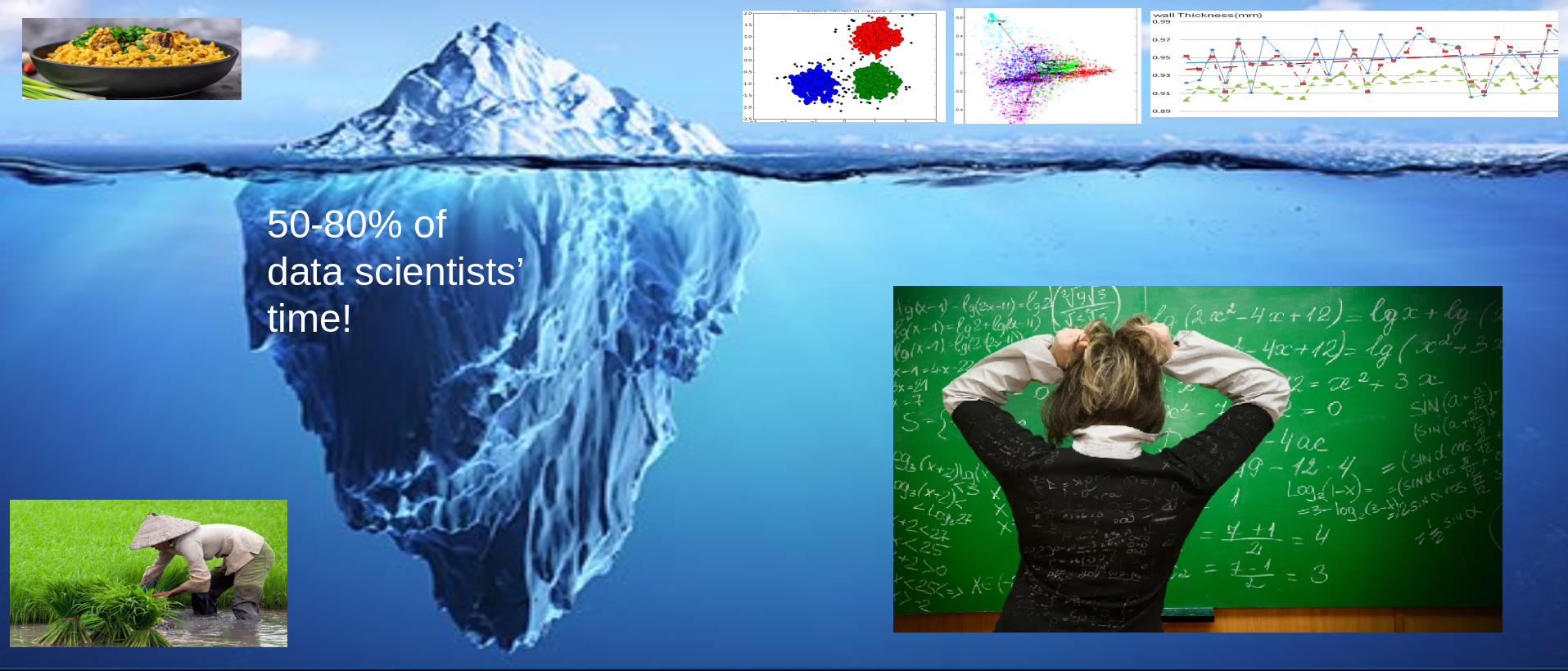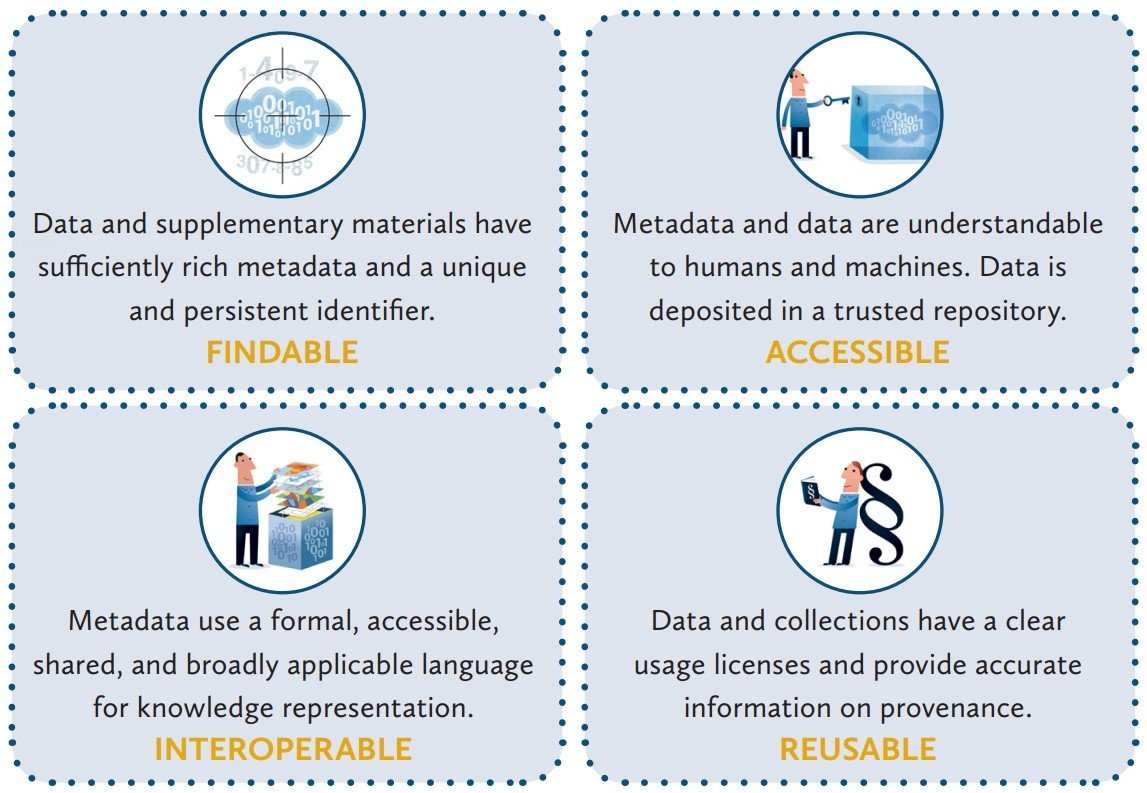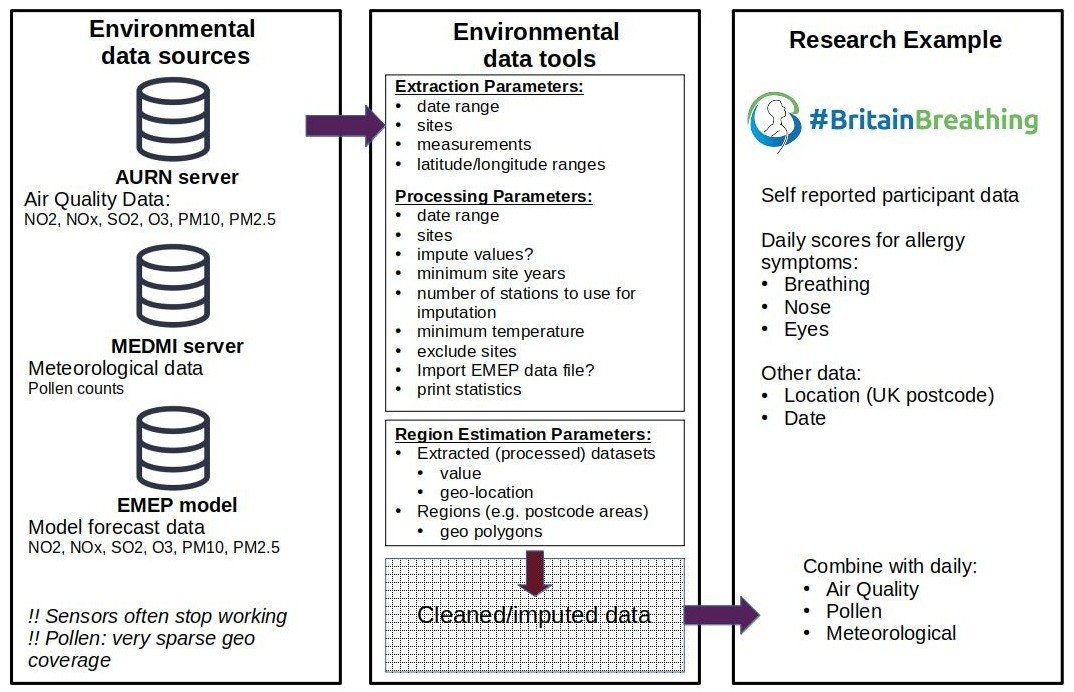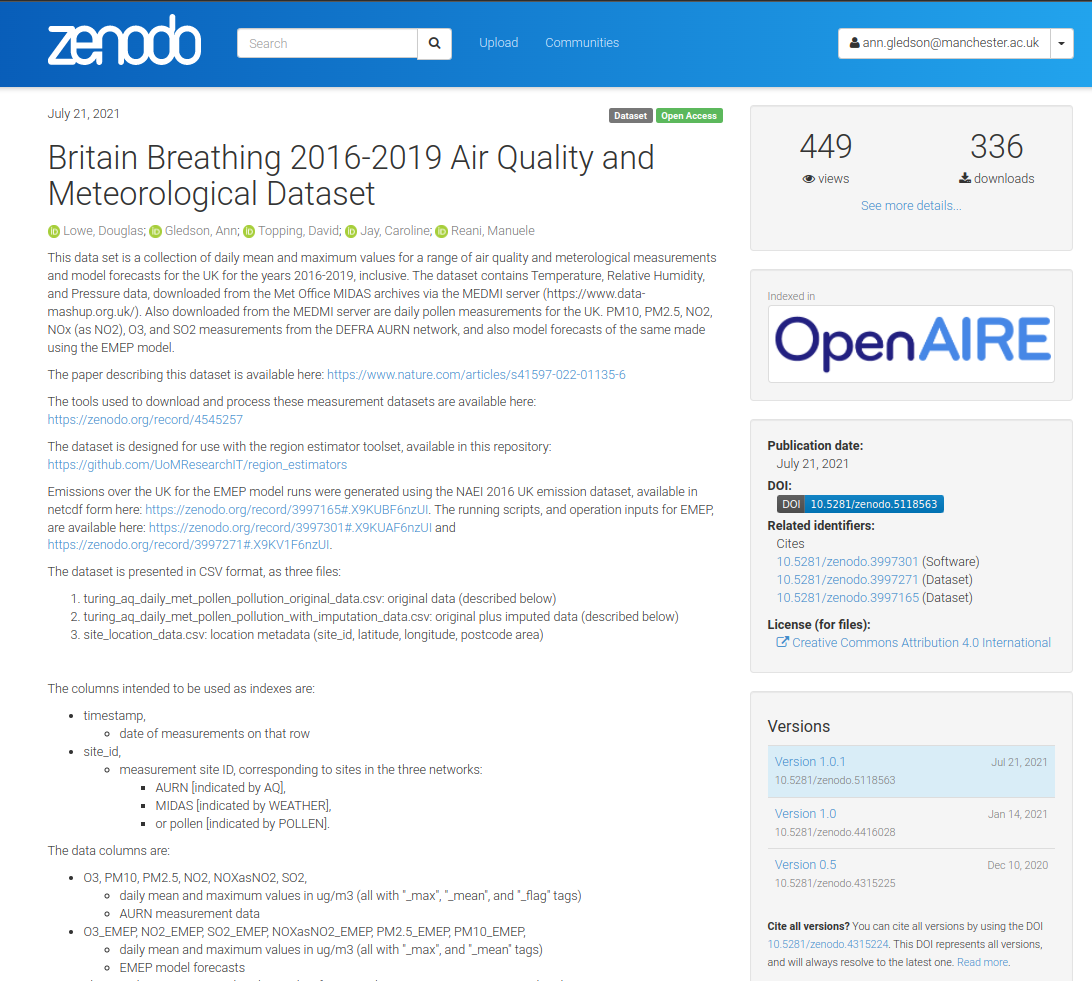
Enabling FAIR access to environmental data: The Research Software Engineer (RSE) role
Ann Gledson, Research Software Engineer
The University of Manchester
https://slides.com/anngledson/fair-access-environment-data


FAIR Open Data

- Reduce repetition of data cleaning and wrangling tasks
- Focus more on key research questions
- Reproducibility -> Trust!
- Visibility:
- E.g. Nature Scientific Data journal
- Easy ingest to platforms: NERC Data centres
- Citations
- Collaboration, communities and networking
- Funding opportunities

Data wrangling



FAIR data principles



Nature Scientific Data: principles

Credit: Scientists who share their data in a FAIR manner deserve appropriate credit.
Re-use: Standardized and detailed descriptions make data easier to find and reuse.
Quality: Critical evaluation is needed to verify experimental rigour.
Discovery: Scientists should be able to easily find datasets that are relevant.
Open: Scientists work best when they can easily connect and collaborate.
Service: Committed to providing excellent service to both authors and readers.
(Full version: https://www.nature.com/sdata/about/principles)

Example project



Environment data

-
Automatic Urban and Rural Network (AURN)
- NOx, SO2, O3, NO2, PM10, PM2.5
-
Medical and Environmental Data (Mash-up) Infrastructure (MEDMI)
- Meteorological: temp, pressure, dewpoint temp, relative humidity
- Pollens: alnus, ambrosia, artemesia, ..., urtica
-
European Monitoring and Evaluation Programme (EMEP)
- Model forecast data
- NOx, NO2, SO2, O3, PM10, PM2.5
-
Complex extraction process:
- Multiple data sources
- Missing data (e.g. sensor down-time)
- Variable UK area coverage


Shared Data


NERC Digital Solutions Hub

- 5-7 RSE roles at UoM
- Technical oversight
- 4-6 to work with the NERC Data Centre RSEs
-
JASMIN Infrastructure RSE
- Aims:
- Convert a broad range of hub requirements into a set of tools that allow FAIR access to existing and future datasets.
- Understand ways of working and ensure that the resulting tool-sets are robust and accessible for all.

Open Data links

-
FAIR Data: https://www.go-fair.org/fair-principles/
-
Data sharing platforms:
-
Zenodo: https://zenodo.org/
-
Figshare: https://figshare.com/
-
Dryad: https://datadryad.org/stash
-
-
Open Science webinar - Helen Glaves (British Geological Survey):
-
https://www.youtube.com/channel/UCv8vRIuTxCP-DgNMCq9KxqA/videos
-

Environment dataset links

- 2016-2019 environment datasets:
- measurements (original and imputed)
- https://zenodo.org/record/4416028
- includes link to extraction and imputation tool set
- regional estimations (from original and imputed)
- https://zenodo.org/record/4475652
- includes link to region_estimators tool
- Scientific Data paper:
- https://www.nature.com/articles/s41597-022-01135-6
- Visualisation Tool:
- http://minethegaps.manchester.ac.uk/
- measurements (original and imputed)